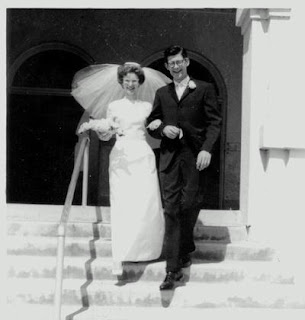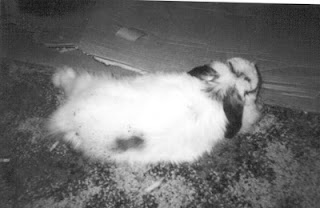-----------------------------------------------------------------
The elders of Thee Church likewise demonstrated their care for me by celebrating my eighteenth birthday. After supper one Wednesday afternoon, Sister E handed me a bulky package. Inside it was a greyish-green down-filled winter parka with a blond fur trim on its hood.
"You looked so cold in that old, brown jacket your dad gave you so we bought this for you," Sister E said as I admired the coat.
"Thanks," I said as gratitude overwhelmed me. "This is really nice." When I tried it on, it fit well.
"Brother H also wrote a poem for you in this card," Sister R said as she handed it to me.
In my room later that evening, I opened up the envelope, pulled out the card, and studied it under my magnifying glass. Inside a boarder of flowers, Sister R typed several verses of Brother H's doggerel. Though he wrote about facing the trials of life, I burst out laughing at one line which read, "At least we know there's a man in there."
This act of kindness touched me deeply. In spite of Sister R's perennial criticism and Brother H's claim that I chose to have poor sight, the church leaders showed they cared about me.
-----------------------------------------------------------------
How I Was Razed is the testimony of how a cultic house church misled me, how I turned my back on God after I felt he perennially failed to heal my eyes, and how he graciously brought me to my senses. Feel free to click here to e-mail me for more information about my books.






